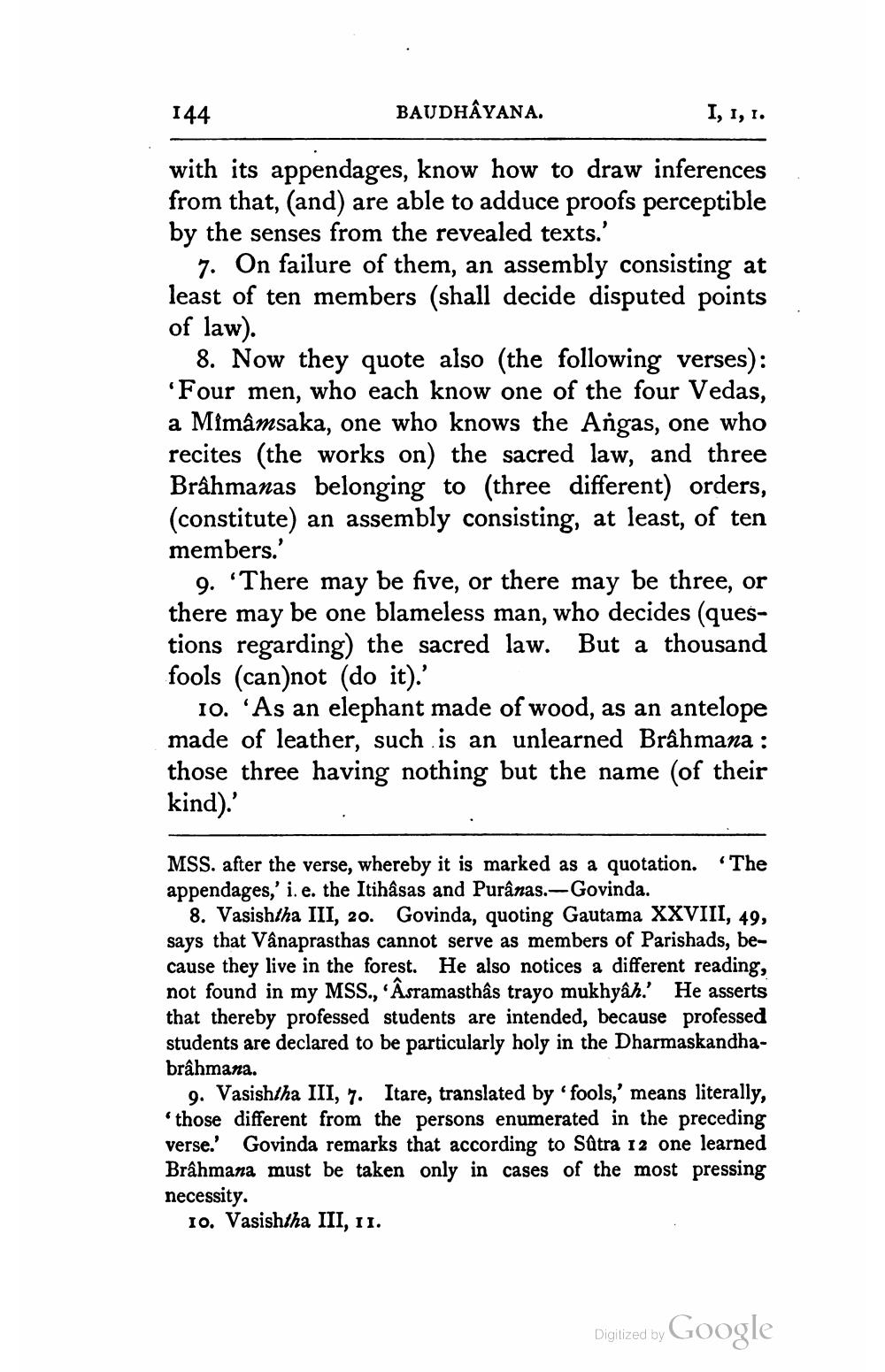________________
144
BAUDHAYANA.
I, 1, 1.
with its appendages, know how to draw inferences from that, (and) are able to adduce proofs perceptible by the senses from the revealed texts.'
7. On failure of them, an assembly consisting at least of ten members (shall decide disputed points of law).
8. Now they quote also (the following verses): 'Four men, who each know one of the four Vedas, a Mimâmsaka, one who knows the Angas, one who recites (the works on) the sacred law, and three Brahmanas belonging to three different) orders, (constitute) an assembly consisting, at least, of ten members.'
9. "There may be five, or there may be three, or there may be one blameless man, who decides (questions regarding) the sacred law. But a thousand fools (can)not (do it).'
10. 'As an elephant made of wood, as an antelope made of leather, such is an unlearned Brâhmana : those three having nothing but the name (of their kind).'
MSS. after the verse, whereby it is marked as a quotation. The appendages,' i.e. the Itihâsas and Puranas.--Govinda.
8. Vasishtha III, 20. Govinda, quoting Gautama XXVIII, 49, says that Vânaprasthas cannot serve as members of Parishads, because they live in the forest. He also notices a different reading, not found in my MSS., 'Asramasthâs trayo mukhyâh. He asserts that thereby professed students are intended, because professed students are declared to be particularly holy in the Dharmaskandhabrahmana.
9. Vasishtha III, 7. Itare, translated by 'fools,' means literally, those different from the persons enumerated in the preceding verse. Govinda remarks that according to Satra 12 one learned Brâhmana must be taken only in cases of the most pressing necessity.
10. Vasishtha III, 11.
Digitized by Google




